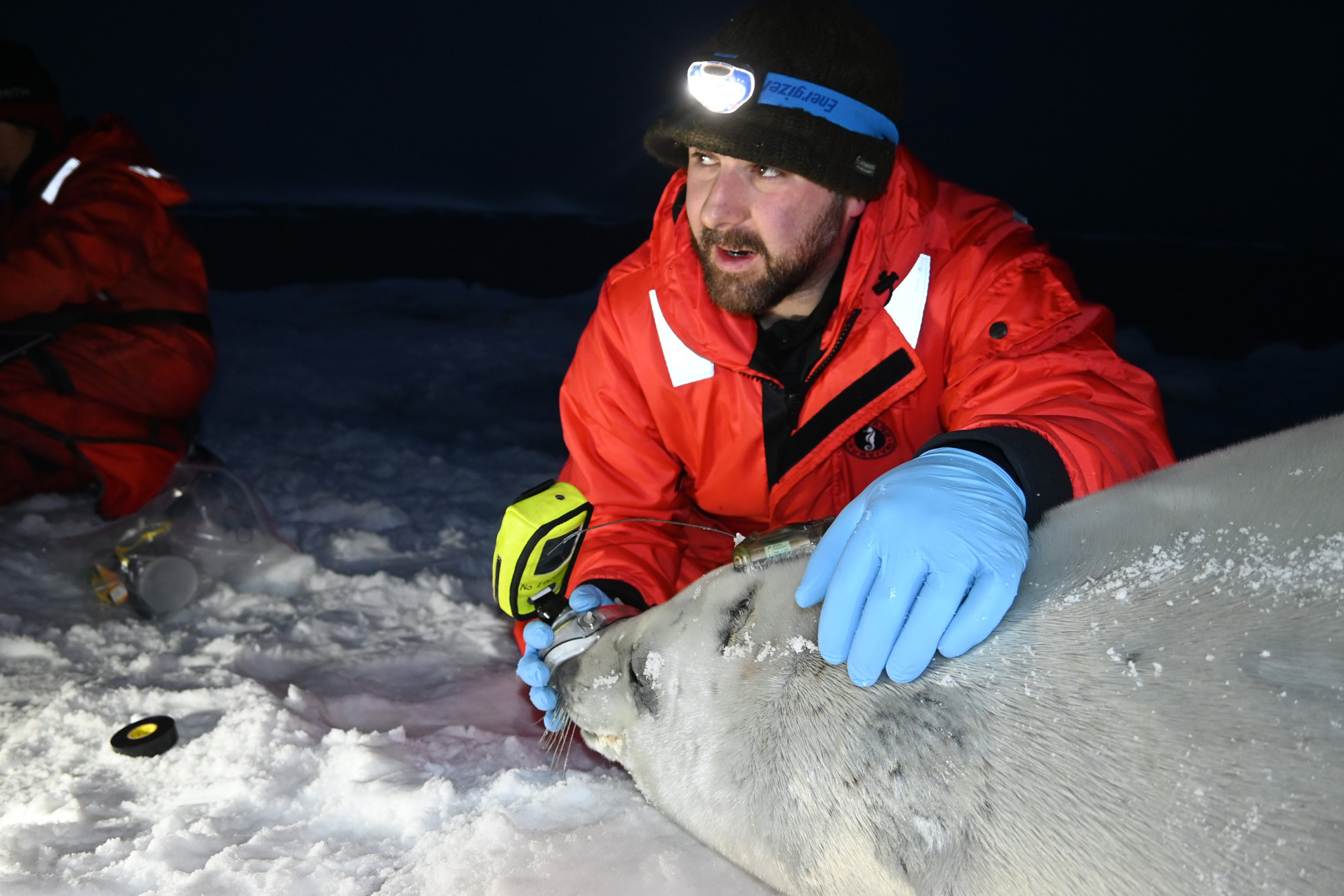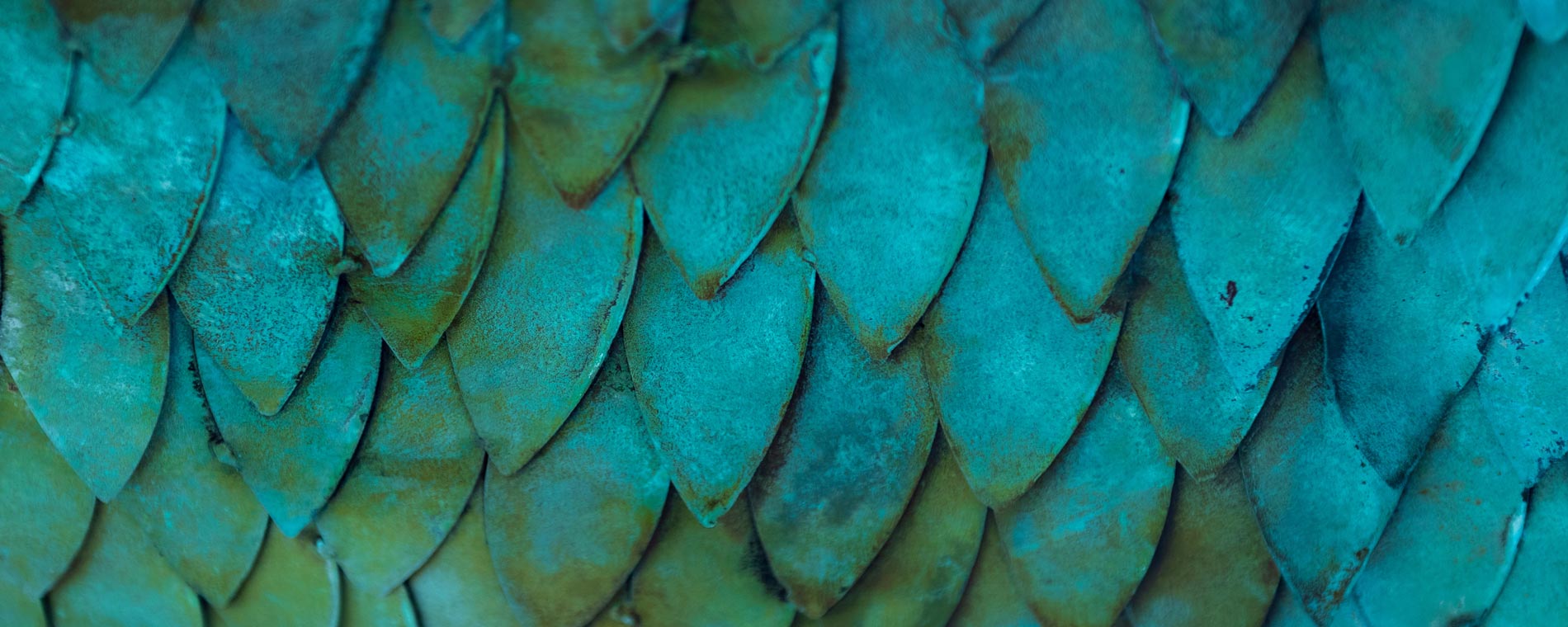
Courtesy: Michael Tift
Crabeater seals are the sentinel species of Antarctica, and those living in the western Antarctic Peninsula are experiencing some of the highest rates of global warming and climate change in the world, threatening their icy habitat and food source.
Michael Tift, assistant professor of biology and marine biology, is the lead investigator on a nearly $60,000 grant from the Marine Mammal Commission to examine the physiological impact of climate change on crabeater seals. One of seven grants awarded from 84 proposals, this grant was co-written with UNCW Ph.D. student Anna Pearson, who will perform the bulk of the proposed research.
“I am incredibly grateful that this research was funded by the Marine Mammal Commission,” said Pearson. “The grant writing process was an invaluable experience that I will hopefully continue to build upon as I move through my career.”
Pearson traveled to Antarctica with Tift the past two summers, where they collected samples from the crabeater seals to study the animals’ health. Using these samples, they will study how environmental stressors, such as sea ice loss and shifts in prey, impact the seal’s stress levels and reproductive physiology.
“Our hope is that this research will broaden our understanding of how crabeater seals have responded to changes in their environment,” said Pearson.
Antarctic krill make up nearly 90% of the crabeater seals’ diet. As a result of sea ice loss and fishing of krill from Antarctic waters, the overall abundance of this tiny, shrimp-like crustacean has steadily decreased in recent decades. The researchers plan to study the impact of these changes on the seals’ physiology using a novel method to analyze the health of animals over several decades.
“We will learn how stress and reproductive hormones have changed in crabeater seals using samples collected from the 1950s through 2023,” said Tift. “This long-term dataset will provide valuable information about how the health of crabeater seals, which depend solely on ice for their primary habitat, is being impacted by climate change.”
A novel method will be developed to measure stress hormones (cortisol and corticosterone) and reproductive hormones (estradiol, testosterone and progesterone) using crabeater seal teeth collected by other organizations from 1950-1990s. They will also examine whisker samples collected from crabeater seals in 2007, 2022 and 2023.
“This research will allow me to explore a new avenue of measuring hormones in historical samples and help to foster connections with the British Antarctic Survey, as I will be traveling to the UK to start these analyses,” said Pearson.
This article has the following tags: CSE - College of Science & Engineering Research & Innovation


